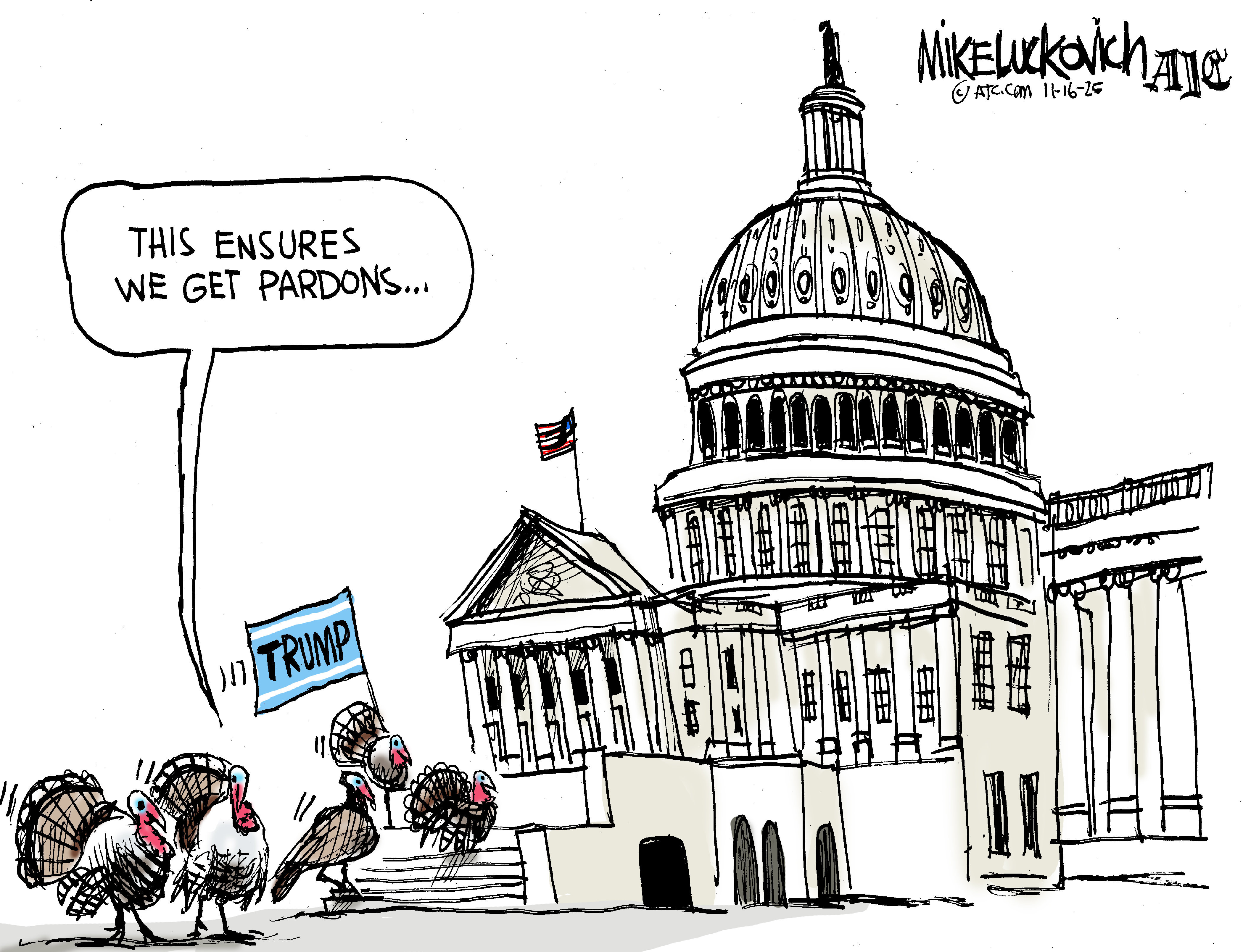The Fed ups the ante
The U.S. throws another $800 billion in the bailout pot
It seems that “desperate times call for desperate measures,” said The Washington Post in an editorial, “or at least unorthodox ones.” The Federal Reserve on Tuesday committed $200 billion to unfreeze consumer lending and offered to buy up $600 billion in mortgage-backed assets. Clearly the “nation’s credit markets are badly broken,” but still, the “very public” Fed is taking “the kinds of credit risks normally associated with private-sector banking.”
Maybe that’s why the increasingly costly bailout feels “more like a giant shaky mortgage” than a down payment on America’s future, said the Detroit Free Press in an editorial. Where’s the “comprehensive, long-term plan” for recovery, like Congress is demanding of Detroit automakers? We can’t do nothing, but “remember when $1 billion was an unfathomable sum?”
That does seem like small change now, said Kathleen Pender in the San Francisco Chronicle, as Tuesday’s $800 billion raises the U.S. government’s “commitment to financial rescue initiatives to a staggering $8.5 trillion,” or about 60 percent of our GDP. It may end up being less than that, but we won’t know for years.
The Week
Escape your echo chamber. Get the facts behind the news, plus analysis from multiple perspectives.

Sign up for The Week's Free Newsletters
From our morning news briefing to a weekly Good News Newsletter, get the best of The Week delivered directly to your inbox.
From our morning news briefing to a weekly Good News Newsletter, get the best of The Week delivered directly to your inbox.
At least the money this time is aimed at “that oft-neglected place where most of the country lives: Main Street,” said Jeffrey Crane in Portfolio online. The Fed’s $200 billion consumer lending plan should help people get credit cards and student, auto, and small business loans. And the $600 billion plan should push down mortgage rates.
The plan will only work, said Craig Torres and Scott Lanman in Bloomberg, if easier credit is appealing to “shaken consumers who aren’t sure they want more debt.” If not, the Fed is “spitting in the wind.”
A free daily email with the biggest news stories of the day – and the best features from TheWeek.com
-
 Will Japan’s first female prime minister defy sumo’s ban on women?
Will Japan’s first female prime minister defy sumo’s ban on women?Under the Radar Sanae Takaichi must decide whether to break with centuries of tradition and step into the ring to present the trophy
-
 Political cartoons for November 16
Political cartoons for November 16Cartoons Sunday's political cartoons include presidential pardons, the Lincoln penny, and more
-
 The vast horizons of the Puna de Atacama
The vast horizons of the Puna de AtacamaThe Week Recommends The ‘dramatic and surreal’ landscape features volcanoes, fumaroles and salt flats